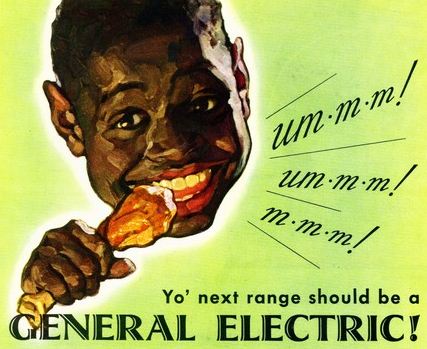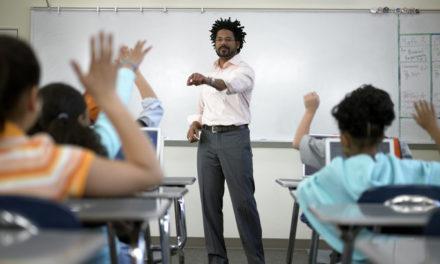 The media seems to love to report on the same diversity faux pas over and over again. The latest one that garnered media attention for way too long, as far as I am concerned, is the fried chicken comment that Sergio Garcia made in reference to Tiger Woods. Was it wrong? Yes. Was it insensitive? Yes. Was it ignorant? Yes. But do we need to hear about it over and over again for weeks? In my opinion, no. The reason that I say no is that there is no learning that is associated with the media’s coverage of the incident.
The media seems to love to report on the same diversity faux pas over and over again. The latest one that garnered media attention for way too long, as far as I am concerned, is the fried chicken comment that Sergio Garcia made in reference to Tiger Woods. Was it wrong? Yes. Was it insensitive? Yes. Was it ignorant? Yes. But do we need to hear about it over and over again for weeks? In my opinion, no. The reason that I say no is that there is no learning that is associated with the media’s coverage of the incident.
Spaniard and fellow pro golfer Sergio Garcia, made a comment in May to the effect that he would invite Tiger Woods over for fried chicken. Obvious many of us recognize that such a joke would feed a stereotype that associates African Americans with fried chicken. Garcia claims that his joke was not racially motivated and he immediately apologized. Looking at it from a cultural perspective, perhaps Garcia did not fully understand the import of his comments, not having been exposed to US racial history. He simply might have thought it was a joke since they had been bantering back and forth, throwing jabs at each other.
That said, even if he did know that he was being racially insensitive, he apologized and Woods did not want to make a big issue of it. After all, even though Woods is commonly considered by the public an African American, he is multi-racial and declared almost a decade ago that his identity was “cablasian” (Caucasian, Black and Asian).
The media has had a field day with this incident, analyzing Woods’ and Garcia’s reactions, debating whether or not they were the right. Garcia certainly has said enough times that he regrets the comment (earlier this week at the practice rounds for the US Open, he sent a written note to Woods) and Woods said he considers the matter closed.
None of the media coverage has offered an opportunity to help us all learn more about why these comments and others like it are inappropriate. You might say, people should know. In my experience often times they just don’t.
So here is my recommendation for how we can use such situations as opportunities to learn and grow. Sergio Garcia makes the fried chicken comment. We try to understand why he made the remark (Give him the benefit of the doubt. Maybe he did not fully understand). If Garcia answers because that is my favorite meal, we have a very different outcome than if he says, I hear Blacks like fried chicken. If Garcia’s answer is the latter, then the learning opportunity presents itself. Did you realize, Mr. Garcia, that in the US to make such a reference is considered racially offensive? Garcia might say, no I did not realize it was such a big deal. Now we need to help him and others understand the racial history and why this comment and other negative stereotypical references would be considered offensive.
The follow up might have been to give Garcia some education on the racial history in the United States to help him and others understand what stereotypes are and why they are so damaging.
Let’s start with where did the Fried chicken stereotype come from? According to research done by Code Switch, in an interview with Claire Schmidt, who is a professor at the University of Missouri who studies race and folklore, it dates back to the 1915 racist silent film, Birth of A Nation which negatively portrays Blacks in one scene acting in a rowdy manner. One of the actors is eating fried chicken, others have their feet on the desk and are in general acting in “shiftless”, lazy ways. The point was to show what would happen if Blacks were allowed to be elected officials.
The idea of fried chicken (even though a US American staple) and Blacks is that it is food that you eat with your hands (like watermelon which is also a stereotype associated with Blacks) and therefore depicts us as uncouth. The fried chicken stereotype has persisted as something that is an “obsession” with Black people.
I am sure that Garcia had no understanding of this history. Maybe Tiger did not either and maybe even many of you who are reading this did not know about the history of this stereotype.
Even so called positive stereotypes such Asians are good in math or Blacks are good athletes have a negative impact. A study reported in Psychology Today related an experiment where Asians were told by a partner that they were given a particular test because they were good in math. Upon completion of the test, participants rated how much they liked their partner and they filled out some other scales including a measure of how much they felt like their partner depersonalized them by reducing them to a member of their racial group. Positive stereotypes did not make people feel good. Asian participants liked the person less, felt more depersonalized and even angry.
Helping Garcia and others grasp the concept of intent versus impact would have been a useful lesson. While he may not have meant to hurt or insult, the impact was clearly just that. We too often assume that when people make inappropriate comments they know exactly what they are doing. I don’t believe that is the case. And just to tell them that it is wrong, and slap their hands without some deeper education keeps us “stuck” at this naïve politically correct place where people tip toe around issues for fear of being labeled as diversity inept. Let’s make it ok to make a mistake but not just leave it there. We need to add the educational component in an effort to minimize repeat offenses.


















